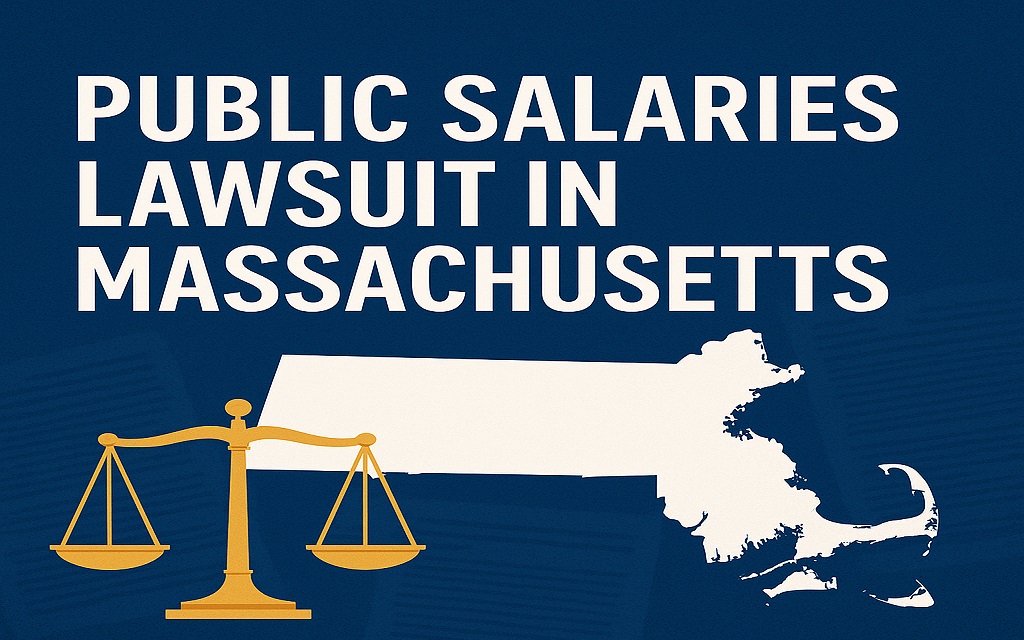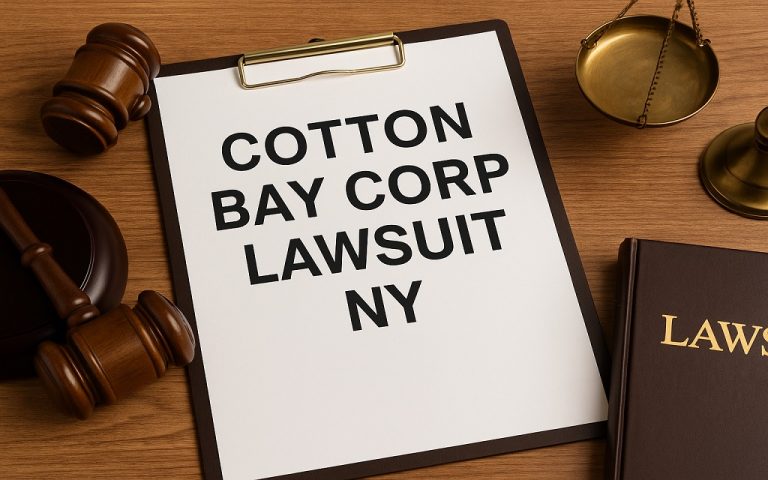A current court dispute in Massachusetts has the potential to change how state governments approach compensation disclosure. The “Massachusetts Public Salaries Lawsuit” has sparked a statewide debate over the public’s right to know versus the rights of public workers. At the center is the state-run database known as CTHRU, which lists individual pay information. This lawsuit forces the legal system to weigh transparency against privacy and labor rights. It could set new standards not only in Massachusetts but across the country.
What Triggered the Lawsuit
When the Office of the Comptroller introduced CTHRU, a digital platform designed to enhance transparency in government expenditure, controversy ensued. The portal displays detailed compensation data of state employees, including names and positions. Many state employees and unions viewed the action as a breach of privacy, while others applauded it as a step towards economic prudence.
The lawsuit filed by several unions representing thousands of public-sector employees was the turning point. They stated that the gateway posed a risk to worker safety and violated privacy regulations. Teachers, first responders, prison guards, and medical professionals said that the system exposed them to cyberattacks, discrimination, and stalking.
Key Players in the Massachusetts Public Salaries Lawsuit
Numerous unions have led the case. These are organisations that support law enforcement, education, and public health specialists. When combined, they account for a significant portion of the state workforce. According to the unions, it is immoral and illegal to publish employee names and income information without the workers’ approval.
The defendant in this case is the Office of the Comptroller, which is in charge of upholding financial transparency resources like CTHRU. They contend that the gateway serves a vital public interest and conforms with state law. Both sides have retained high-profile legal teams, signaling the case’s potential to reach higher courts.
Understanding CTHRU and Public Access
CTHRU is Massachusetts’s flagship financial transparency tool. It provides users with instant access to data, including payroll, contract awards, and departmental spending. Users may search by job title, department, and name in the wage area. As a result, it is a valuable resource for taxpayers, watchdogs, and journalists.
Supporters of the platform argue that transparency leads to more responsible government. When people can see how tax dollars are spent, misuse becomes harder to hide. However, critics say that publishing names alongside salary figures crosses a line. They argue it exposes employees to identity theft and harassment, especially in sensitive roles like law enforcement or domestic violence advocacy.
Legal Grounds and Arguments
The unions base their case on two principal legal grounds:
- Massachusetts Wage Act: Plaintiffs argue that the act prohibits public exposure of wage data tied to identifiable individuals. They say the law protects against undue exposure and reputational harm.
- Right to Privacy: Article 14 of the Massachusetts Declaration of Rights guarantees individuals a right to privacy. Unions argue that the portal’s current format infringes upon this right by linking sensitive financial data to identifiable names.
The state, however, counters that transparency is a legal obligation under the Public Records Law. They argue that taxpayers have a right to know how their tax dollars are spent. The defense also claims that the wage and privacy laws cited by the plaintiffs were not designed for publicly funded salaries.
Recent Court Activity and Developments
In early 2024, the Massachusetts Superior Court denied a request for a temporary injunction to disable the portal. The court emphasized that while the privacy concerns are valid, more evidence and legal analysis are needed. While the lawsuit is pending, the public may still access the data thanks to the decision to keep CTHRU operational.
Both parties have since presented witnesses and expert testimony at several sessions. Regarding the usage of the data and whether it has caused verified harm, the judge has asked for more proof. Legal analysts anticipate that the case will continue well into 2025. If the lower courts remain divided, the case may advance to the Massachusetts Supreme Judicial Court.
Implications for Public Employees
Suppose the court rules in favor of the unions, the Office of the Comptroller may be required to redact employee names or restrict access to salary details. That would mark a significant shift in Massachusetts’ approach to transparency policy.
For public workers, this would mean enhanced privacy and possibly greater security. Many say they feel uneasy knowing that anyone can access their income data. Such exposure has led to cases of online harassment and even real-world confrontations.
On the other hand, watchdog groups and journalists fear that redactions would undermine accountability. Transparency helps uncover pay disparities, favoritism, and potential corruption. Without access to complete salary data, public oversight could be significantly weakened.
Broader Public Reaction
The general public’s reaction has been mixed. Some support complete transparency, believing it keeps the government honest. Editorial boards from major newspapers have backed the Comptroller’s stance, saying that public jobs require public accountability.
Others are more sympathetic to the employees. They argue that the digital age creates new threats that older laws didn’t anticipate. Online doxxing, identity theft, and harassment are more common today. They say workers shouldn’t have to choose between public service and personal safety.
Social media conversations and local town halls show that the debate resonates widely. Citizens are concerned both about how their tax money is spent and how their neighbors are treated in the workforce.
Union Involvement and Collective Bargaining Impact
This lawsuit has significant implications for union negotiations. If the court supports the plaintiffs, unions may gain leverage in demanding contract terms that limit digital disclosure. Already, some unions have started adding provisions to new contracts that address digital transparency and consent.
The case also changes how unions approach member advocacy. In addition to fighting for wages and benefits, they now face the task of protecting data privacy. This may lead to new roles within union leadership focused on legal compliance and digital rights.
Conversely, a ruling that is unfavourable to the unions can reduce their negotiating leverage. In collective bargaining, public opinion is crucial. During contract disputes, unions may face public scrutiny if the transparency of their negotiations exposes excessive wages or pay disparities.
Legal Precedents in Massachusetts and Beyond
Massachusetts has traditionally supported transparency. The state’s Public Records Law mandates disclosure of various types of government data, including employee salaries. But technology has changed the landscape. Information that once required formal requests is now available instantly online.
In California, similar lawsuits have failed, with courts citing the public’s right to know. In New York, courts have upheld transparency but recommended limited redactions. These precedents may influence how Massachusetts judges evaluate the case.
However, legal professionals caution that state-specific constitutions and regulations significantly impact the legal environment. The laws of other states may be construed differently from the Massachusetts Declaration of Rights, which is one of the oldest in the nation.
Must Read: Open Payroll Massachusetts Lawsuit: A Legal Battle Over Transparency and Privacy
Possible Outcomes of the Massachusetts Public Salaries Lawsuit
1. Court Upholds Full Transparency: CTHRU remains as-is. This would strengthen government transparency efforts and set a precedent against future legal challenges. It would also affirm that taxpayer-funded salaries must remain public.
2. Partial Redaction Ordered: The court may require the removal of personal identifiers, such as names or employee IDs. Salary figures would stay public but not traceable to individuals. This would strike a balance, preserving oversight while protecting identity.
3. Ruling in Favor of Employees: CTHRU could face significant changes or even be shut down. Massachusetts would need a new system for public reporting, likely one that utilizes aggregated or anonymized data. However, other states may follow suit, reshaping public salary databases nationwide.
Expert Opinions
Legal experts and scholars remain split. Some argue that transparency ensures accountability, especially in large bureaucracies. They say exposing salaries can deter fraud and promote fair compensation.
Others caution that privacy is a fundamental right that must evolve with technology. What was once a simple data point in a file cabinet is now instantly available to millions. The context in which data is shared has undergone a dramatic change.
Journalists support full access, citing their ability to uncover critical stories. Civil rights groups urge caution, noting that minorities, women, and low-income workers face disproportionate harm from data exposure.
How This Affects You
- If you’re a taxpayer, you may lose a valuable tool to ensure that your tax dollars are spent wisely. Transparency enables better governance, but it must be balanced against the need to ensure employee safety.
- If you’re a state employee, you may either gain protection from data exposure or continue to face public visibility. Your role may become part of a larger legal precedent.
- If you’re part of a union, this lawsuit could redefine how contracts are written. Privacy may become a more significant aspect of collective bargaining in the future.
Final Thoughts
In short, Massachusetts is not only debating salary transparency, but it is also considering other measures. It is wrestling with the broader implications of digital governance. This lawsuit could shape how we strike a balance between public accountability and personal rights in the 21st century.
Regardless of the outcome, the decision will have lasting effects. Other states are watching. Unions are adjusting. Governments are rethinking their digital policies. The Massachusetts public salaries lawsuit reminds us that data, once made public, can empower or endanger, and the law must catch up.
Disclaimer: This article provides a general overview of the Massachusetts Public Salaries Lawsuit, based on publicly available information, and is intended for informational purposes only. It is not legal advice. It does not constitute legal advice.
Musarat Bano is a content writer for JudicialOcean.com who covers lawsuits, legal news, and general legal topics. Her work focuses on research-based, informational content developed from publicly available sources and is intended to support public awareness. She does not provide legal advice or professional legal services.




